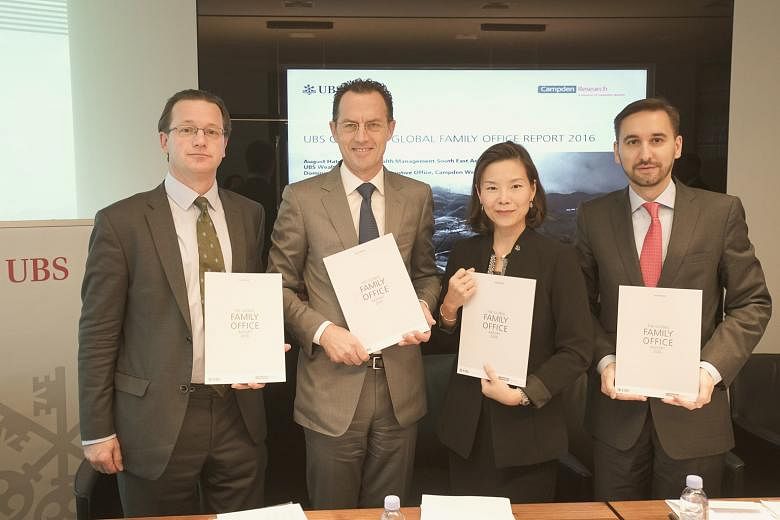Even the wealthy were hit by underperforming financial markets last year, as "family offices" - investment firms for the wealthy - in the Asia-Pacific region recorded no returns on average.
Family offices in Singapore fared marginally better, recording an average return of 1.2 per cent last year, according to the latest Global Family Office Report by Campden Wealth Research and Swiss private bank UBS, released last week by UBS.
Family offices are private investment firms that manage the assets of wealthy families.
Out of the 242 family offices surveyed, 19 per cent were from the Asia-Pacific. The average value of assets under management at Singapore family offices was US$753 million (S$1.07 billion), higher than the region's average of US$492 million.
Average returns last year were significantly lower than in 2014, when family offices in Singapore notched up average returns of 6.9 per cent. Then, they also outperformed the global average of 6.1 per cent.
Figures for this year have not been released.
Mr Dominic Samuelson, chief executive of Campden Wealth, said Singapore's strong performance was due to family offices here having more holdings in private equity compared with others in the region.
Mr August Hatecke, UBS head of wealth management for South-east Asia, added that family offices in the region tend to prefer direct investments in companies as they are made up of people who have been, or are, business owners.
"They don't want to just invest in liquid assets, like bonds and equities. They want to have a say in the management of the company, so they tend to invest in private investments as well as real estate, as these are businesses that they know and have an influence over.
"They also want the second generation to stay as entrepreneurs."
Hedge funds lost favour with family offices, falling from 9 per cent of the global portfolio in 2014, to 8.1 per cent last year.
In Singapore, direct private equity in companies made up 21 per cent of asset allocation, compared with just 6 per cent for hedge funds.
"It doesn't mean that the hedge funds are over but families are challenged by the fee structures of such funds, so they are not entirely convinced that there is alpha there at the moment," said Mr Samuelson.
The poor showing is prompting family offices to consider cost cutting. The report, now in its third year, showed that more than a third of family offices said they are more or significantly more cost-conscious than they were 12 months ago.
"There has been limited performance on investments in previous years, that is why costs have come down," Mr Samuelson said.
Mr Hatecke said that family offices in Europe used to have larger head counts, but have realised that "in-house specialists can't add that amount of value compared with specialists in asset management".


